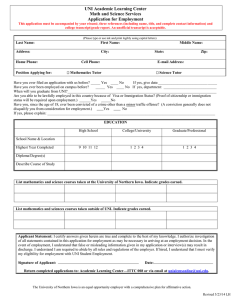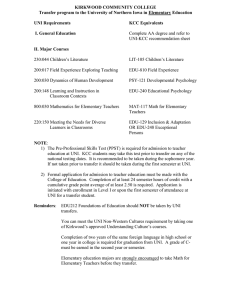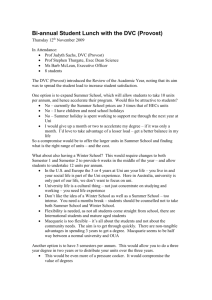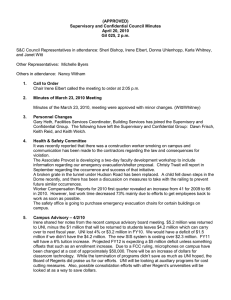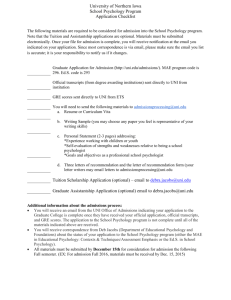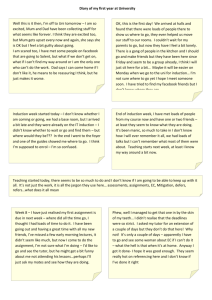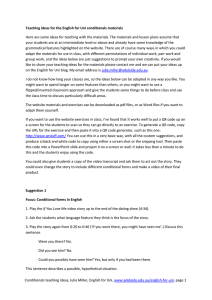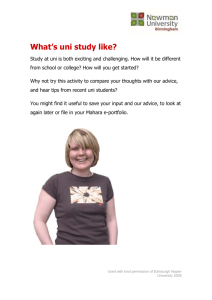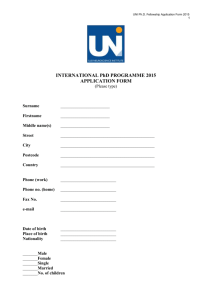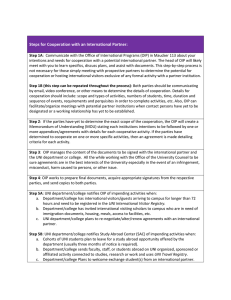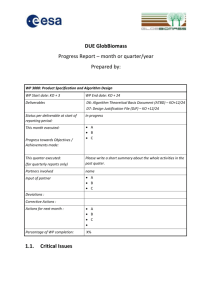December 18 Meeting - Mission and Vision Group Notes
advertisement
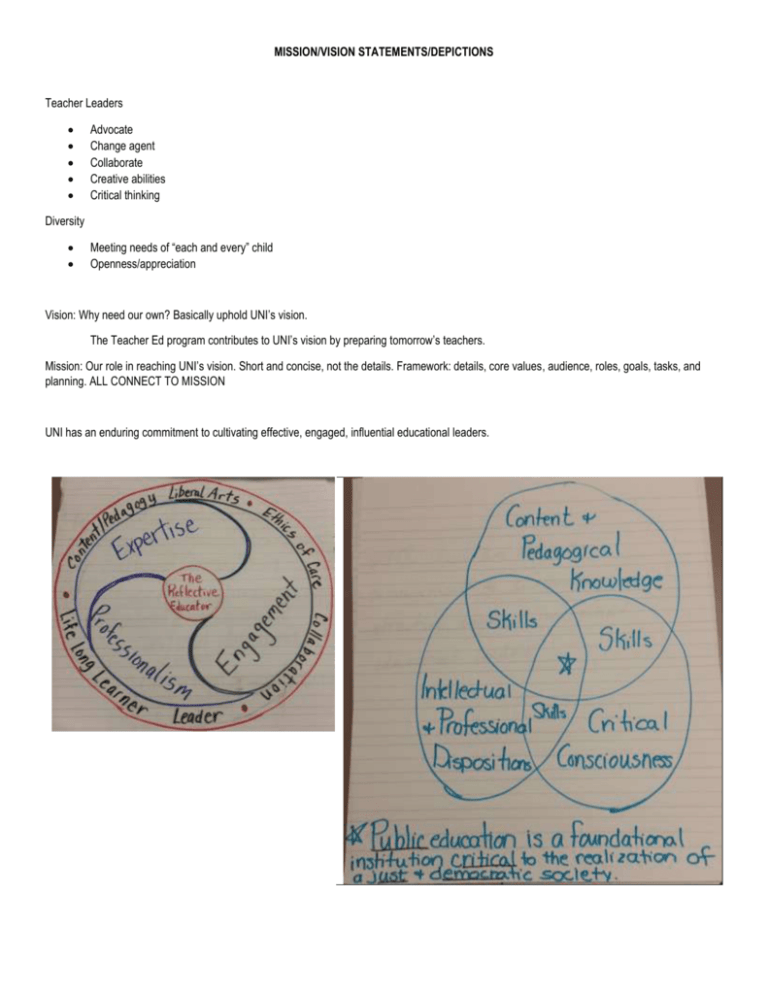
MISSION/VISION STATEMENTS/DEPICTIONS Teacher Leaders Advocate Change agent Collaborate Creative abilities Critical thinking Diversity Meeting needs of “each and every” child Openness/appreciation Vision: Why need our own? Basically uphold UNI’s vision. The Teacher Ed program contributes to UNI’s vision by preparing tomorrow’s teachers. Mission: Our role in reaching UNI’s vision. Short and concise, not the details. Framework: details, core values, audience, roles, goals, tasks, and planning. ALL CONNECT TO MISSION UNI has an enduring commitment to cultivating effective, engaged, influential educational leaders. TEACHER DISPOSITIONS, KNOWLEDGE, AND SKILLS, and TEACHER ED “BASES” D K Lazarus Adua, Emily Borcherding, Kevin Droe, Deb Gallagher, Alex Oberle, Leigh Zeitz Empower others Values diversity Adaptability Values student centric learning Empathy Positive view: self, others Resilience Positivity Barbara Baker, Katheryn East, Scott Ellison, Lynn Ensworth, Melissa Heston, Rick Vanderwall Curiosity Creativity Passion Open heart and mind Persistent Diligent Perseverance Empathetic Advocate Wisdom Thief Able to deal with ambiguity Change agent Rob Boody, Chad Christopher, Donna Hoffman, Amy Lockhart, Kim Miller, Wendy Miller Lifelong learner Collaboration skills Reflective Leader Content pedagogy Teacher identity * Sociopolitical context of education * Communication Goal setting and decision making Organization skills Classroom management tools Calculated risk taking Collaboration Ability to get outside the box Advocacy S Global knowledge and connections Strong language skills Classroom management Subject area knowledge Conceptual and philosophical background Optimizing tech-based opportunities & human learning Tech savvy Optimize 1:1 computing learning environment Problem-based learning Interacting with parents and peers Authentic learning Organization Content pedagogy Teaching for understanding Cultural competency Classroom management Student engagement Lesson/unit planning Assessment UDL (universal design for learning) Differentiation Technology Sue Alborn-Yilek, Nadene Davidson, Mary DoneganRitter, Bob Martin, Brandy Smith Self-respect “Confidence” Tolerance Respect Advocacy for others Care Concern Empathy Humility Visionary Innovation All that others before us have shared. View all through positive lens Child development foundation Understand typical/atypical development and how to address Content knowledge Real world – global Deb Deemer, Tolif Hunt, Rick Knivsland, Lori Miller, Chris Opsal Each/every child’s living “context” How to acquire knowledge of what to do with it (problemsolving) temper with judgment Technology Adaptations “on the fly” Use of assessment data Aesthetic awareness, beauty/meaning Ethical sensitivity Love/caring Larry Escalada, Catherine Miller, Kyle Rudick, Marcy Seavey, Beth Van Meeteren Whole-heartedness Open-mindedness Responsibility (Dewey) Understanding of context: individual difference, poverty Communication Fostering students’ aspirations and agency Cultural competence …of pedagogy …of content …of pedagogical content knowledge (Shulman) What you need to do to convey the three “knowledges” Take care of selves B Classroom management 1:1 learning/teachingcoaching Collaborative teaching arrangements Formative/summative/ authentic assessment n/a Model dispositions and make explicit Teacher wellness UNITEF connected to real schools Valuing the LAC Supported field experience Rigor Connected curriculum Effective advising Communications - on all levels Supportive environment from recruitment of candidates through life – join UNI family Opportunities to take risks within supportive environment Staff model all we want from students Strong L.A. core Service opportunities Other “I can” statements UNI alumni network and events PD for UNI faculty on holistic teaching PD for UNI faculty on Teacher Ed curriculum alignment Recruitment of teachers of color and teachers with disabilities Pedagogy nested in institutional nested in cultural
